We’ve ranked the best 75 individual season teams ever, which is featured in our SLAM’s TOP 75 NBA Teams of All Time special issue. This week, we’re unveiling which squads made it on our top 10. To find out who else made it on the list, read here.
3. 1971-72 Los Angeles Lakers
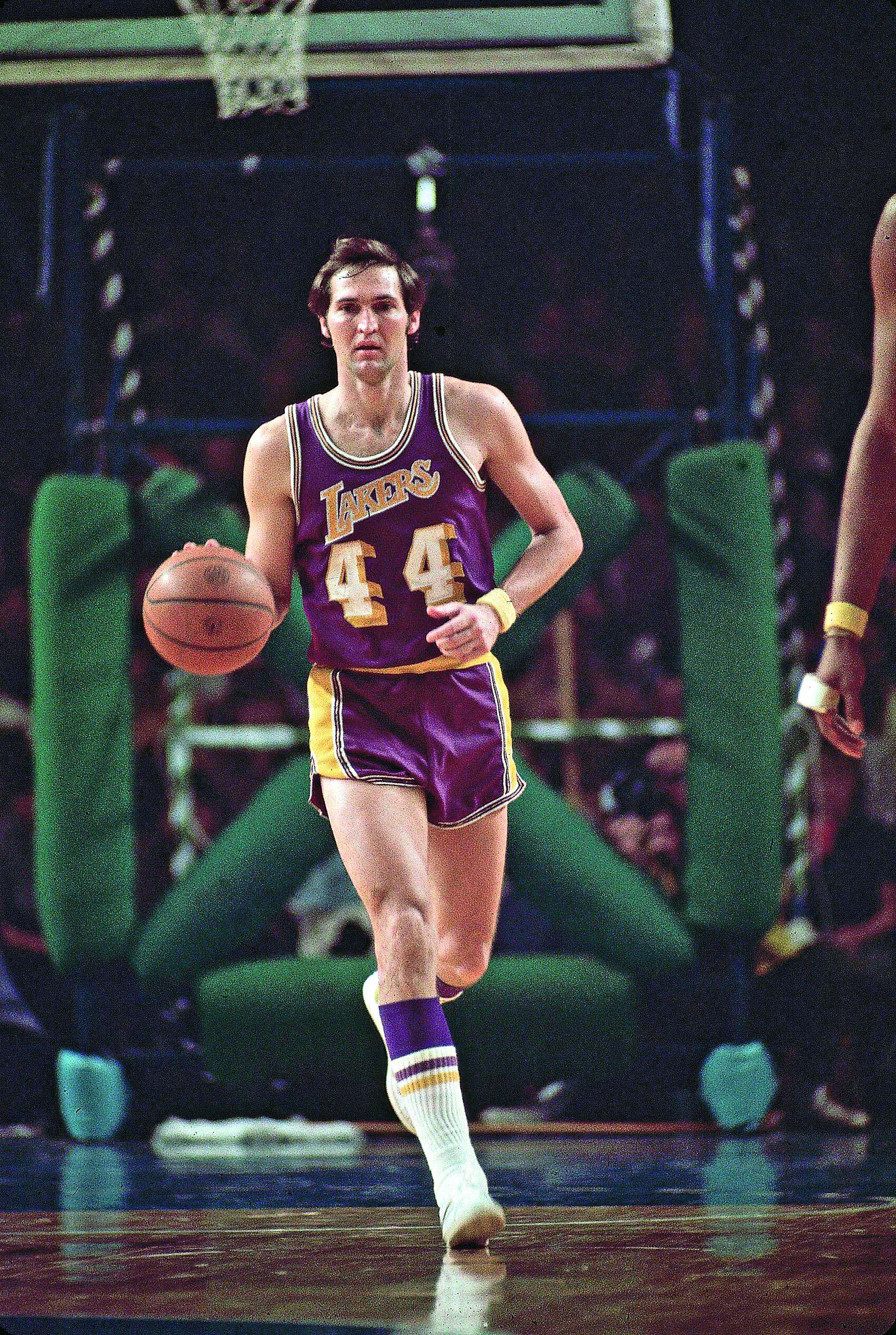
Coach: Bill Sharman
Record: 69-13
Roster: Elgin Baylor, Wilt Chamberlain, Jim Cleamons, Leroy Ellis, Keith Erickson, Gail Goodrich, Happy Hairston, Jim McMillian, Pat Riley, Flynn Robinson, John Trapp, Jerry West
It had been an ugly decade for the Lakers, after they left Minneapolis and settled in L.A. From 1949-54, the franchise won five titles. It played for another championship in 1959. But the ‘60s? Six trips to the Finals. Six losses—all to the Celtics. Legendary guard Jerry West was beginning to wonder whether he would ever get to feel like a winner.
The situation was particularly painful in 1969, when L.A. hosted the Celtics in the seventh game of the Finals at the Fabulous Forum. Owner Jack Kent Cooke was so convinced his team would finally win that he had dozens of purple-and-gold balloons trapped behind netting in the arena’s rafters, ready to flutter to the floor when the Lakers clinched the championship. But instead of a celebration, there was another disappointment, as the Boston dynasty came to a close with its 11th crown in 13 seasons.
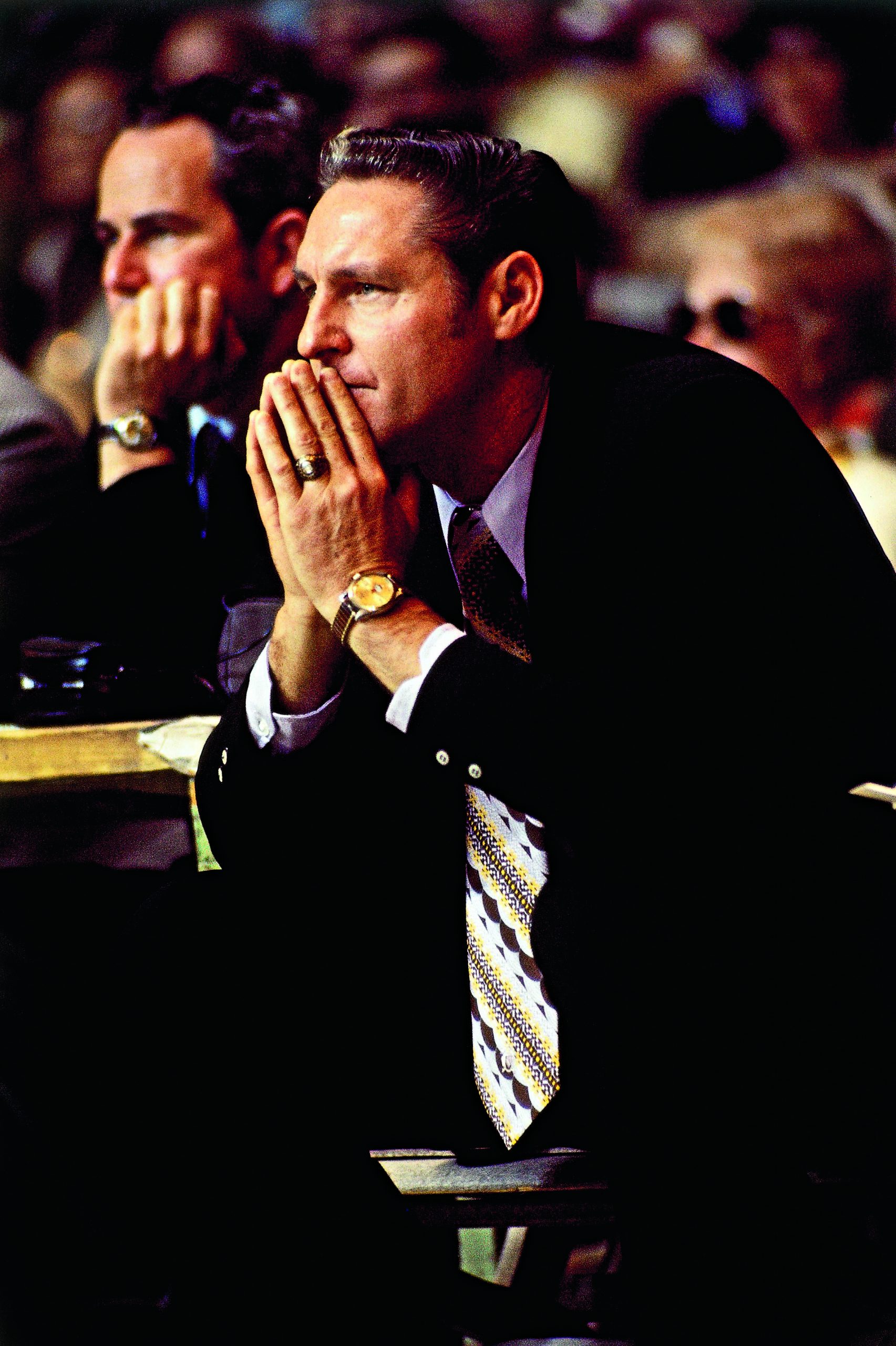
Things weren’t any better the next season. Los Angeles dropped another deciding game in the Finals, this time to the Knicks, who fed off Willis Reed’s heroics and Clyde Frazier’s excellence. When the Lakers dropped a Western Finals decision to Milwaukee in 1971, it was time for a change. Cooke directed GM Fred Schaus to sign Bill Sharman as coach. Thus began L.A.’s transformation from sad-sack also-ran to NBA champion.
Sharman re-cast the Laker approach, convincing center Wilt Chamberlain to focus more on rebounding and defense and less on scoring. The Lakers had guards Gail Goodrich and West, both of whom scored more than 25 a game, for that. Power forward Happy Hairston hit the boards with a ferocity, and wing man Jim McMillian hit a ton of corner jumpers and got out on the break with a fury. In fact, the whole team ran with abandon. The Lakers averaged 121.0 ppg.
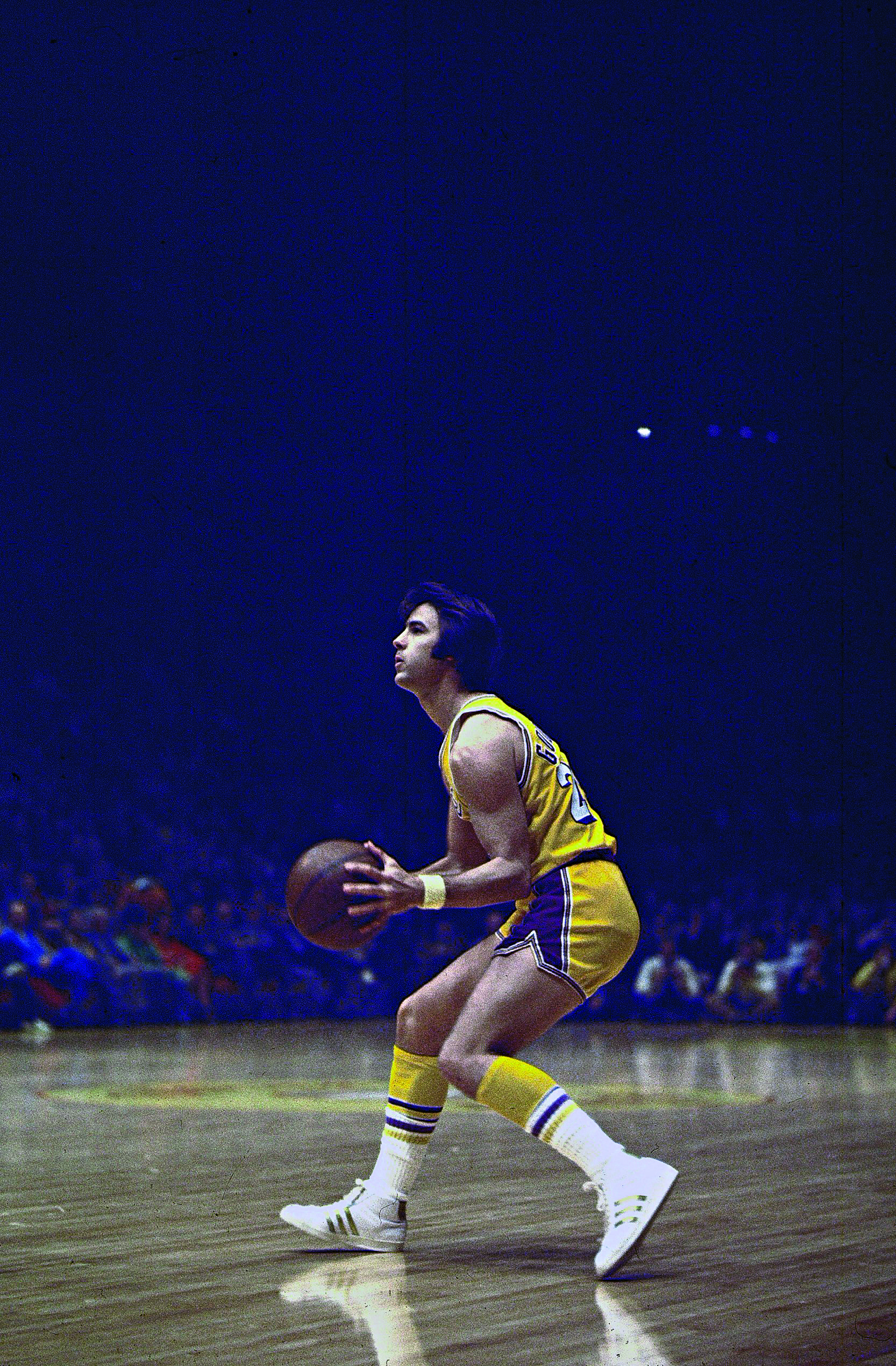
Sharman also instituted the shootaround concept in 1971, primarily to make sure Chamberlain got out of bed early enough in the day so that he was ready to play that night. It worked. Not only did The Dipper play in all 82 games, he helped the Lakers to an NBA-record 69 victories. Included was a 33-game winning streak—the longest in history for any major US sport—during which the Lakers beat their opponents by an average of 16.7 ppg.
L.A. breezed to the Pacific Division title and swept away Chicago in the opening round of the playoffs. Waiting in the Western Finals were the defending champion Bucks, who had won 63 games and boasted the terrific tandem of center Kareem Abdul-Jabbar and guard Oscar Robertson. After Milwaukee whipped the Lakers, 93-72, in the first game—in Los Angeles—some doubt crept into the collective Laker psyche.
The Lakers won a wild Game 2, 135-134, to even the series and went on to overcome the Bucks in six. One of their nemeses had been vanquished. Another—New York—was waiting. The Knicks had routed Boston in the Eastern Finals in five games and were hoping to relive their 1970 title success at the expense of L.A. When the Knicks won the first game, in Los Angeles, by 22, many were shocked. The Lakers were motivated.
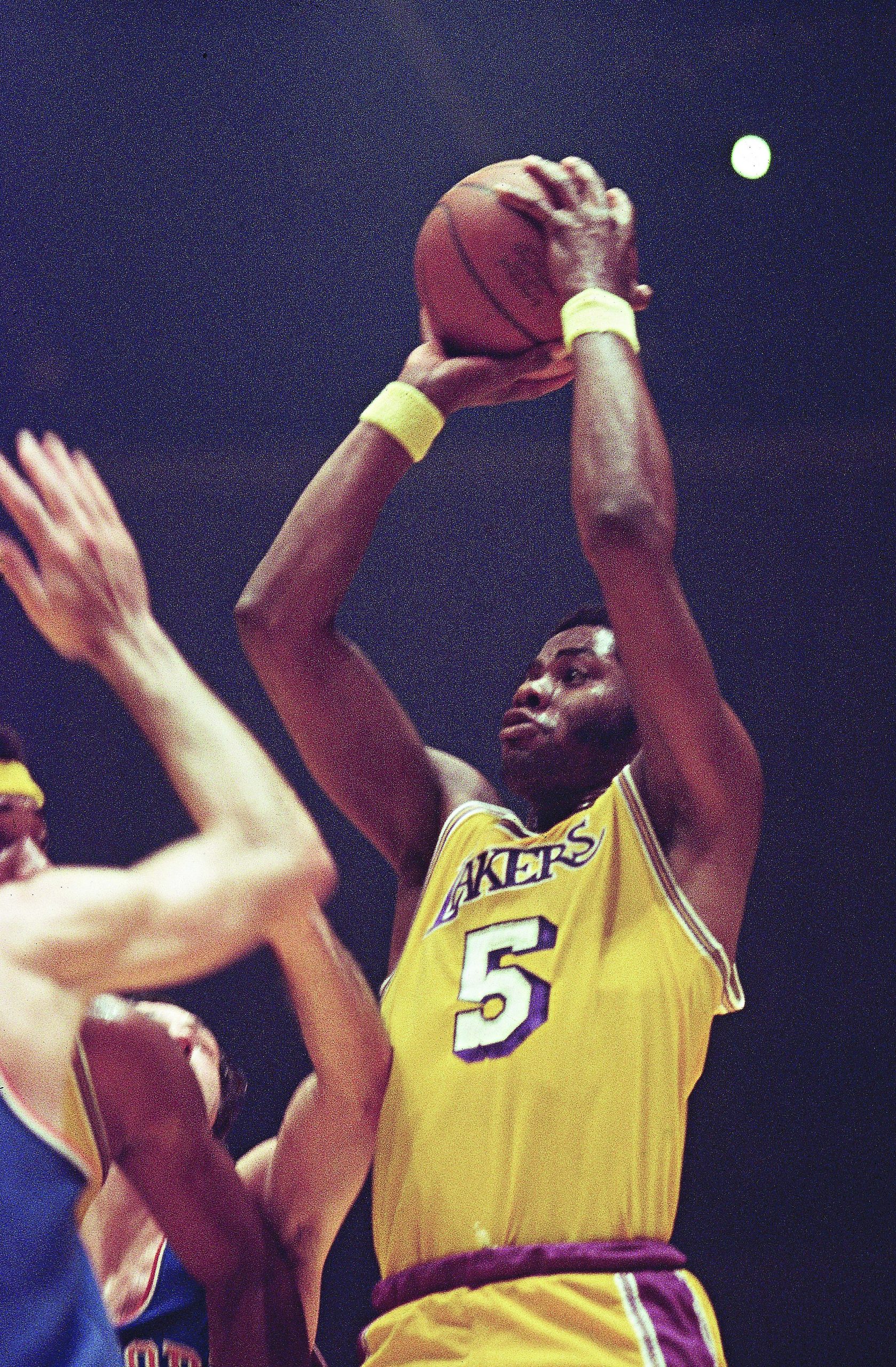
That would be it for the Knicks’ success. The Lakers evened the series with a triumph in the second game, and Chamberlain had 26 points (on 9-10 shooting) and 20 boards to key a 107-96 victory in the third. The Lakers won the series in five games, capping a tremendous season and bringing vindication to the franchise. Chamberlain was the Finals MVP, and West could finally feel like a winner.
Boy, did it feel good.
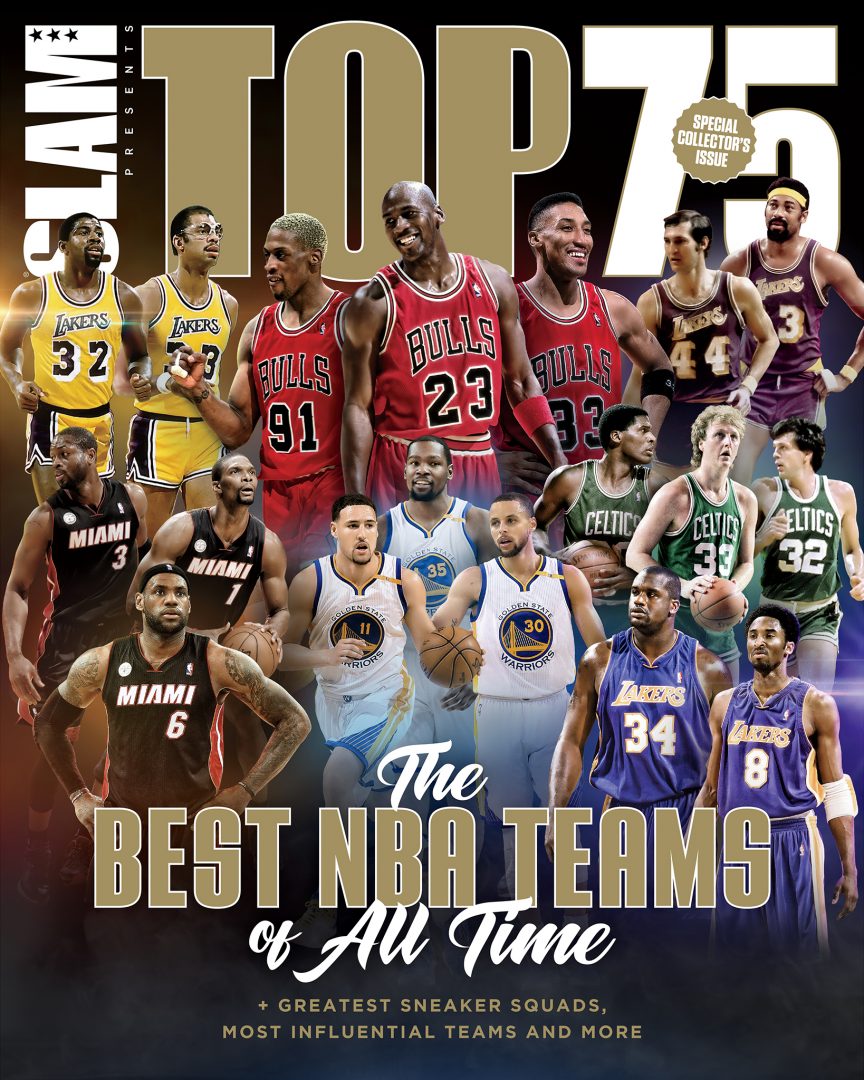
Get your copy of SLAM Presents TOP 75 NBA Teams Of All Time
Photos via Getty Images.